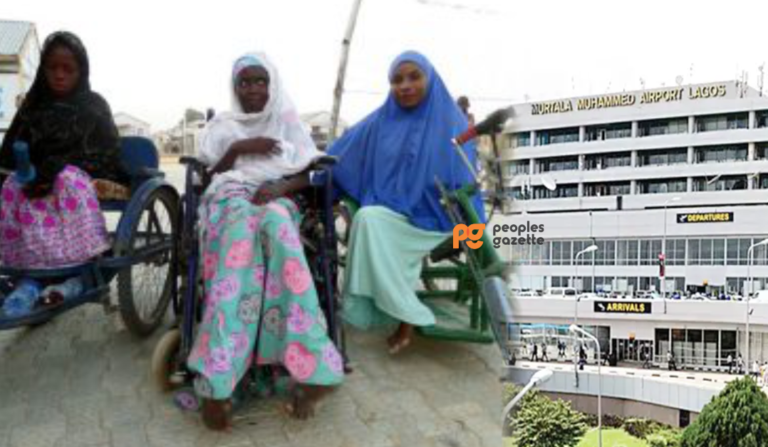
The Ministry of Aviation has reiterated its commitment to ensuring disabilities-friendly and inclusive airports across the country for the benefit of Persons with Disabilities (PWDs).
Dr Emmanuel Meribole, the permanent secretary of the ministry, said this on Wednesday in Abuja during a stakeholders’ forum on enhancing access to airports for PWDs.
The forum was organised by the Coalition of Disability Organisations (CODO) as part of efforts to advocate and ensure an inclusive society.
He said that the ministry was willing to partner with relevant agencies to amend any identified gap to meet appropriate changing requirements to ensure accessible airports for PWDS.
Mr Meribole, represented by Mr Herbert Ndumele, his senior administrative officer, said that enhancing airports was an internationally recognised norm under Article 37 of the Chicago Convention signed in 1944 by ICAO member states including Nigeria.
“Contracting states should ensure that PWDs when travelling be provided with special assistance to ensure they receive services customarily available to the general public.
“That all elements of a journey, from beginning to end are made accessible and on the basis of the above-mentioned standards and recommended practices, contracting states, including Nigeria have taken necessary measures to make the system work.
“We can say our airlines have standardised to a great extent, including voluntary commitments, their procedures for acceptance and handling of disabled passengers,” he said.
He said that the International Air Transport Association (IATA) played an important role in standardisation and implementation of procedures to ensure the rights and dignity of PWDs were fully taken into account in airport operations.
Mr Meribole reiterated that airports across the country were becoming increasingly accommodating toward passengers with disabilities with the help of technology.
“The lifting systems, wheelchair assistance or any other appropriate devices are made available in order to facilitate the movement of elderly and PWDs passengers between the aircraft, the terminals and the car parks on both arrival and departures.
“The government is focusing on human-capacity development and regular stakeholder engagements as a means of strengthening the Public-Private-Partnership machinery for effective service delivery,” he said.
Mr David Anyaele, the Convener of CODO commended the ministry for its commitment to ensuring accessible airports across the country for the benefit of not less than 35 million PWDs.
Mr Anyaele said that enhancing airports was the surest indicator of an inclusive society which could not be overemphasised.
He said that there was a need for effective partnership between the Ministry of Aviation and other stakeholders in order to actualise the provisions of the Discrimination Against Persons with Disabilities Prohibition Act in the sector.
“The need for partnership cannot be overemphasised; it is the first step towards actualising any form of achievement as regards enhancing airports and implementing other provisions of the law regarding the aviation industry.
“The national disability law which provides a five years transitory period for the remodification of structures would soon elapse with very little progress made in regards to accessible structures, especially in our airports.
“Now we have approximately nine months to the end of the transitory period for the modification of structures.
“This is to enhance access for PWDs and the airports are a major structure that needs to be enhanced for the benefit of PWDs,” he said.
Mr Abdulwahab Matepo, national chairman, Spinal Cord Injuries Association of Nigeria (SCIAN), urged the aviation ministry to factor in recommendations made from the various disability clusters.
“Recommendations should be on the provision of travel information in various languages including in Braille for the visually impaired and signage for the deaf community.
“We recommend that the ability to communicate using sign language should be a criterion for the recruitment of airport staff and not necessarily the creation of a redundant disability desk office to address PWDs related issues,” he said.
(NAN)


